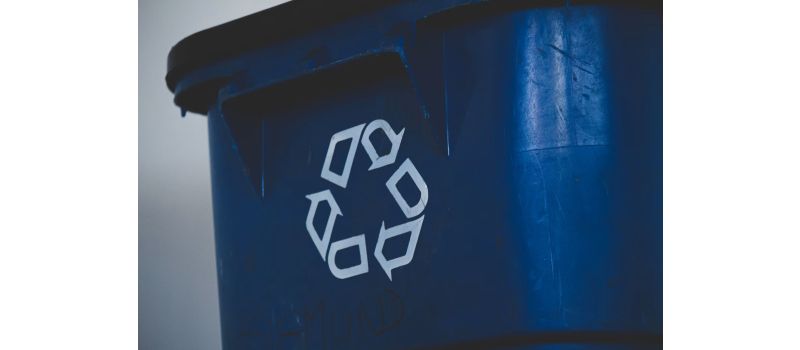With the introduction of Simpler Recycling 2025, businesses are adjusting to a new, standardised approach to waste management. But how does this initiative impact shared workspaces, where employees from different organisations may share office facilities and resources?
Understanding how Simpler Recycling works in these environments is essential for ensuring compliance, reducing waste, avoiding recycling contamination, and contributing to a more sustainable future.
Kingfisher Direct understands the unique challenges faced by businesses operating in shared office spaces, which is why we provide the tools and guidance needed to make the transition to Simpler Recycling smooth and effective.
In this guide, we’ll explore how shared workspaces can implement the new recycling standards, how to prepare for the changes, and the benefits of adopting a streamlined recycling system in these environments.
What is Simpler Recycling 2025?
Simpler Recycling 2025 is a UK-wide initiative to standardise recycling collections across businesses. By introducing the new rules, the government aims to improve recycling rates, reduce contamination in recycling, and make waste management more efficient.
For businesses, including those in shared workspaces, this means:
-
A standardised approach to recycling materials like paper, glass, plastics, and food waste.
-
A mandatory weekly food waste collection.
-
Clear guidance on separating recyclable materials.
How Does Simpler Recycling Work in Shared Workspaces?
Shared workspaces, where multiple companies occupy the same building or office, face unique challenges regarding waste management. To align with Simpler Recycling 2025, workspaces must implement a system that accommodates different businesses while adhering to the new recycling standards.
This system should include:
-
Standardised Recycling Bins and Stations
Each shared workspace must have clearly labelled recycling bins or recycling stations aligned with the Simpler Recycling 2025 requirements. Businesses should place these stations in easily accessible areas, with separate bins for the following materials:
-
Glass (bottles and jars)
-
Paper and cardboard (newspapers, magazines, packaging)
-
Metal packaging (aluminium cans, tins)
-
Plastic packaging (bottles, tubs, trays)
-
Food waste (separate weekly collection)
-
Garden waste (if applicable)
Ensure that each workstation and common area can access these bins to encourage employees to recycle correctly.
-
Educating Staff Across Multiple Companies
With multiple organisations sharing the same workspace, educating staff across different businesses is essential. To ensure everyone is on the same page, provide clear instructions on the new recycling rules, and ensure that waste segregation is ingrained into your workplace culture.
Implementing simple training sessions, visual guides, and digital reminders can help everyone stay informed. For example:
-
Label recycling bins clearly with materials that can and cannot be recycled.
-
Post instructions in common areas for easy reference.
-
Use signage to direct employees to the nearest recycling stations.
-
Send out email reminders to staff on proper recycling practices.
-
Weekly Food Waste Collection
Under Simpler Recycling 2025, all businesses, including shared workspaces, must separate food waste for weekly collection. This change means all kitchen and dining areas have designated food waste bins.
To prepare for this change:
-
Provide separate bins for food scraps in kitchens and eating areas.
-
If necessary, invest in food waste containers that are hygienic and easy to use.
-
Educate employees on what can and cannot be placed in food waste bins (e.g., no plastic or packaging, only biodegradable materials).
-
Regular Waste Audits and Reviews
Shared workspaces should regularly audit their recycling practices to ensure compliance with Simpler Recycling 2025. This can involve periodic checks to ensure the correct materials are recycled and bins aren’t overflowing.
Consider conducting a monthly or quarterly review of waste disposal habits, evaluating the effectiveness of your recycling system, and making adjustments as needed. For example:
-
Ensure that bins do not overflow and that collection services are scheduled appropriately.
-
Address any issues where waste may be incorrectly sorted or contaminated.
-
Partnering with Waste Collection Services
Since the new regulations require businesses to separate recyclables, shared workspaces should partner with waste collection services that adhere to Simpler Recycling guidelines. Working with a waste management company that understands the specific needs of a shared workspace will help streamline the process and ensure timely collections.
Why is Simpler Recycling Important for Shared Workspaces?
Simpler Recycling 2025 provides several benefits for shared workspaces:
-
Improved Sustainability: By standardising recycling, workspaces can increase their recycling output and reduce the amount of waste sent to landfills.
-
Reduced Operational Costs: Waste management can save costs through reduced disposal fees and better resource management.
-
Legal Compliance: Adopting Simpler Recycling standards ensures that your workspace complies with current UK regulations, reducing the risk of penalties.
-
Positive Environmental Impact: Recycling helps reduce carbon emissions and conserve resources, making your workspace more environmentally responsible.
How Can You Prepare for Simpler Recycling in Your Shared Workspace?
Preparing for Simpler Recycling 2025 in a shared workspace is a positive step towards a compliant and sustainable business. Here’s how you can get started:
-
Review Your Current Waste Management: Ensure your system is aligned with Simpler Recycling requirements, and make any necessary adjustments.
-
Invest in the Right Recycling Bins: Equip your workspace with the correct recycling bins for segregating recyclable materials. We offer various options, from small desk-side bins to large communal stations.
-
Communicate with Other Tenants: If you're in a shared space, coordinate with other businesses to ensure everyone follows the same recycling practices.
-
Offer Training and Resources: Provide staff with the tools and knowledge to recycle correctly, whether through in-house workshops, guides, or digital platforms.
We provide a wide range of recycling solutions for shared workspaces, including bins, stations, and educational resources to help your business meet Simpler Recycling 2025 standards. Explore our full range of waste management solutions today, and please don’t hesitate to contact our team for any further advice.
For more tips, up-to-date information, and product guides, visit the Kingfisher Direct Blog.

